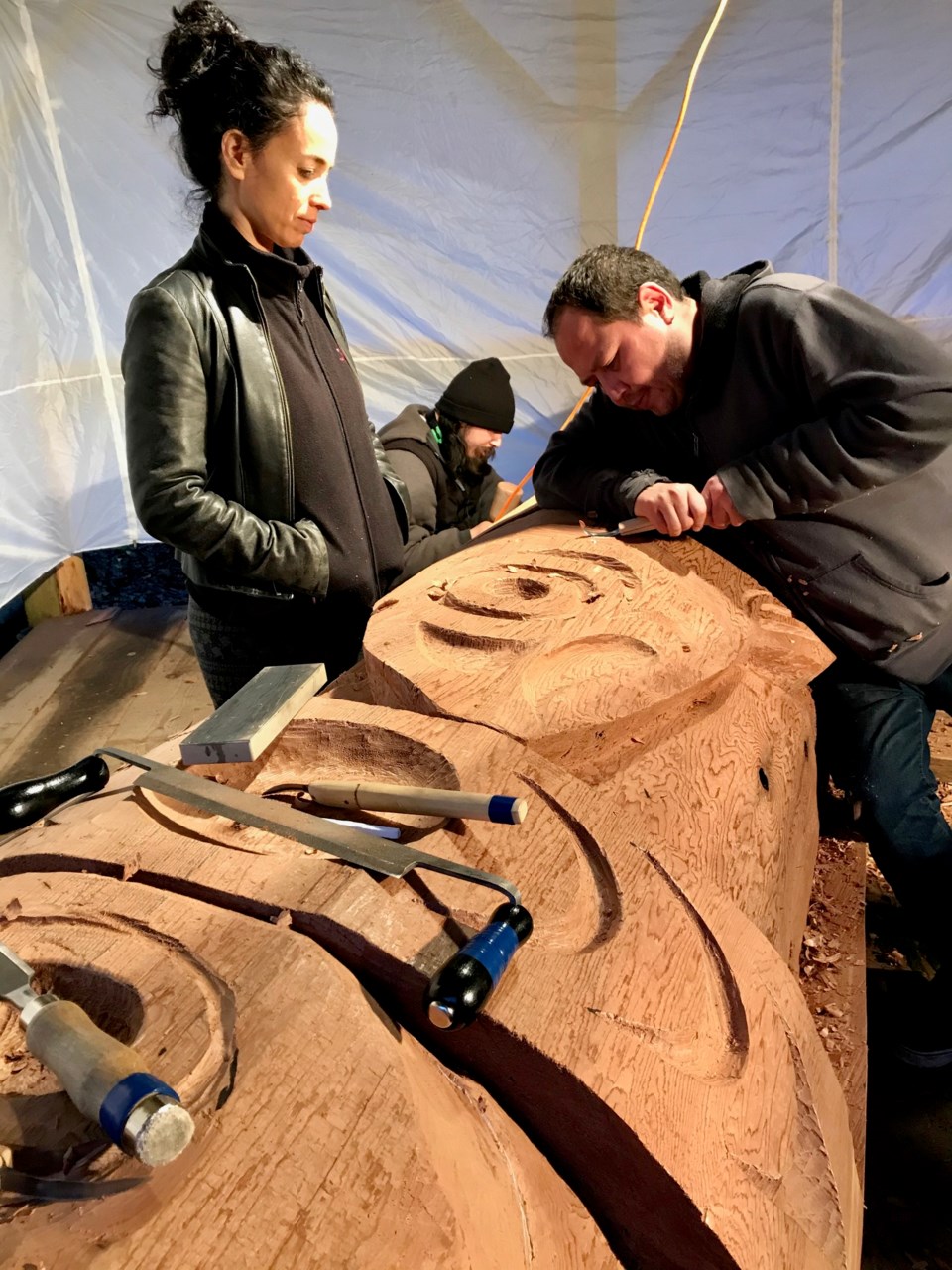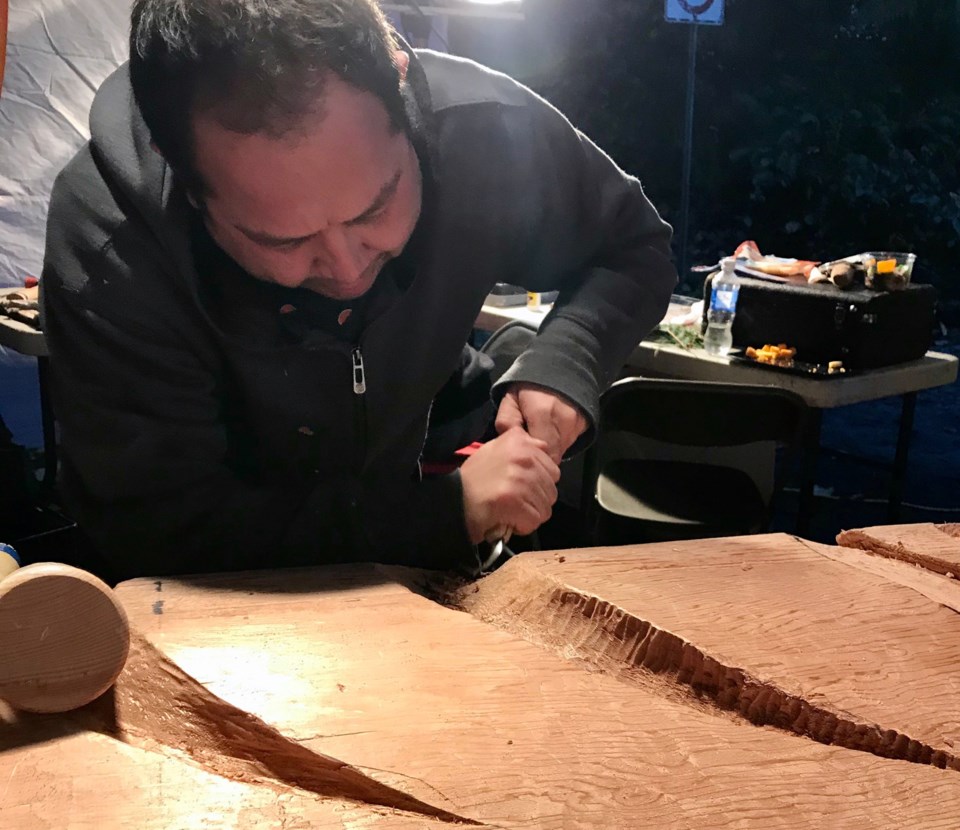Two months ago, Kwantlen First Nation artist Brandon Gabriel and Tasha Faye Evans, co-ordinator of the Welcome Post Project, were invited to Coquitlam Lake to pick a tree.
Metro Vancouver asked the pair to select an old-growth western red cedar that had fallen on its own last winter in the watershed, the traditional territory of the Kwikwetlem First Nation.
They chose a 600-year-old, 17-foot giant and, after an on-site blessing ceremony, the log was trucked to Port Moody’s Noons Creek Hatchery, where Gabriel and others began to prepare it.
Then, the artist and Evans spoke with Kwikwetlem Chief Ed Hall and the elders about the band’s story, and heard how the century-old dam on the Coquitlam River had destroyed the salmon they depended on.
With their tales in mind, Gabriel began to sketch out a pattern for a house post featuring Kwikwetlem symbols: feathers, fish, fish eggs and a lightning bolt, the latter to signify the dam power.
Last month, Gabriel and his helpers, including Dené/Cree artist Jonas Bige, stripped off the bark (to use for future weaving projects) and started to carve, clean and polish the 4,300-lb. log.
And although they only work three days a week, the group has gained plenty of attention from Shoreline Trail walkers, School District 43 classes and visitors from around the Lower Mainland.
“The community feels very invested in this project,” Gabriel told The Tri-City News last Monday. “There has been genuine curiosity, and from all ages, about Kwikwetlem’s story.”
The carving, due to wrap up in mid-December, follows completion last year of a house post honouring the Tsleil-Waututh First Nation, which — like the KFN — also has past ties to the Burrard Inlet. That post, telling the Tsleil-Waututh story, was dedicated and raised at the hatchery last year.
Evans said she hopes to see the Kwikwetlem house post up at one of two spots in Rocky Point Park on the next National Indigenous Peoples Day, June 21: the pier or at the head of the Shoreline Trail.
In total, she plans five to be raised as part of the Shoreline Trail House Post Project, for which Evans has collected $100,000 for the artist labour and educational programming (the other three will honour the fellow Coast Salish bands of Musqueam, Katzie and Squamish nations).
Supported by the Port Moody Foundation, the city, the Port Moody Ecological Society (which operates the Noons Creek hatchery), Kwikwetlem First Nation and Canada Council for the Arts, the house post project has the band’s blessing. A few of its youth (plus SD43 students) have even picked up carving tools and had a dig.
Gabriel, who has his bachelor’s degree in visual arts from Emily Carr University of Art + Design, said he appreciates the goodwill and participation on the “Spirit of Kwikwetlem” house post, and the words and gifts from the passersby who have donated food and drinks to the carvers.
To see Brandon Gabriel in action, visit the tent behind the Noons Creek hatchery Sundays, 11 a.m. to 5 p.m.; Mondays, 7 a.m. to 5 p.m.; and Tuesdays, 7 a.m. to noon. To donate to the Shoreline Trail House Post Project, go to noonscreek.org (under Welcome Post Project). You can also follow the carving via at Facebook.com/noonscreek or on Twitter via @jonasbige.

Tasha Faye Evans with Brandon Gabriel. Photo by Janis Cleugh/The Tri-City News



